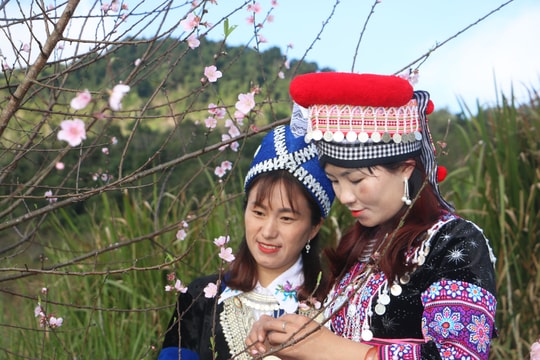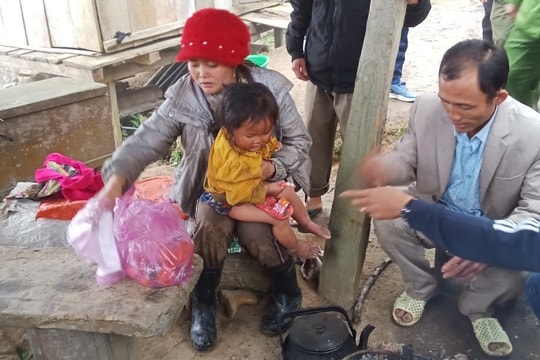Silently sowing words 'in the clouds'
(Baonghean.vn) - Fulfilling their noble duty, teachers in remote areas accept being far away from their families and children, entrusting their personal feelings to stay and stick with their villages for decades; being dedicated, wholehearted, and devoted to their work. The happiness of these teachers is simply seeing their students come to school every day and learn their lessons.
Teaching "in the cloud"
Hoi Cois one of the most remote border highland villages in the far west of Tuong Duong district (at an altitude of 1,200 - 1,500m above sea level). The village was formed in the late 60s of the last century, from a few Mong ethnic households in Huoi Moi village, Tri Le commune, Que Phong district who migrated here... Many years ago, the life of Huoi Co people was hard, obscured in the fog. The children did not have enough warm clothes, had no school, no class. Before they grew up, the children went to the forest to clear and burn fields to sow seeds. Life after life on the rocks was precarious.
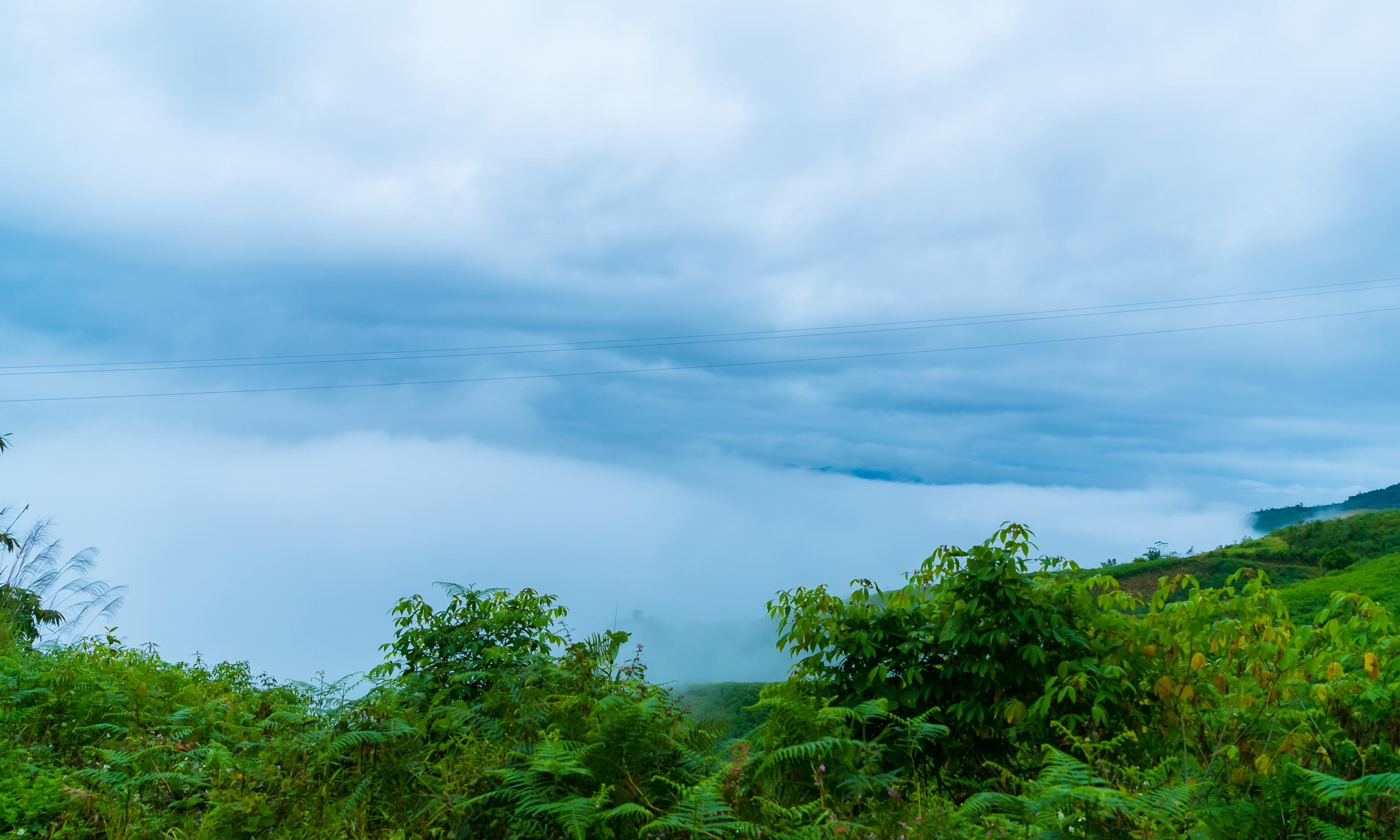 |
Huoi Co is one of the most remote border villages in the far west of Tuong Duong district (at an altitude of 1,200 - 1,500m above sea level). Today, Huoi Co is a large village with 63 households and over 300 people. The village has a concrete road connecting to the national highway, and it only takes about 4 hours to get to the district. The village has electricity and a school. Photo: Duc Anh |
Today, Huoi Co is a large village with 63 households and over 300 people. The village has a concrete road connecting to the national highway, and it only takes about 4 hours to get to the district. The village has electricity and a school. The villagers promote the movement of raising pigs, buffaloes, cows, goats, and intensive rice cultivation. In 2020, Huoi Co was the first border village in Nghe An to meet the new rural village standards.
The development of Huoi Co today cannot be separated from the contributions of teachers in the village. In the village, many years ago, 2 kindergarten and primary schools were established (students entering secondary school were transferred to the school located in the commune center for semi-boarding). Many generations of teachers have returned to the village. In the temporary school conditions, they have constantly overcome difficulties to teach their children. According to the villagers, from those simple classrooms, nearly 30 children have developed, studied further and have university degrees.
Visiting Huoi Co Primary School in early November. The solid school is located on the hillside right at the beginning of the village. Now the rainy season has begun, the fog has turned into cold rain and covered the school. In the hazy sky, the sound of teachers and students reading lessons echoes across the mountains and hills... In the 2022 - 2023 school year, the school has 2 classes, grade 1 and grade 2, with 21 students. Students in grades 3, 4, and 5 are all transferred to boarding school at the main school 20km away. The school has 2 "permanent" teachers who perform teaching duties in Huoi Co.
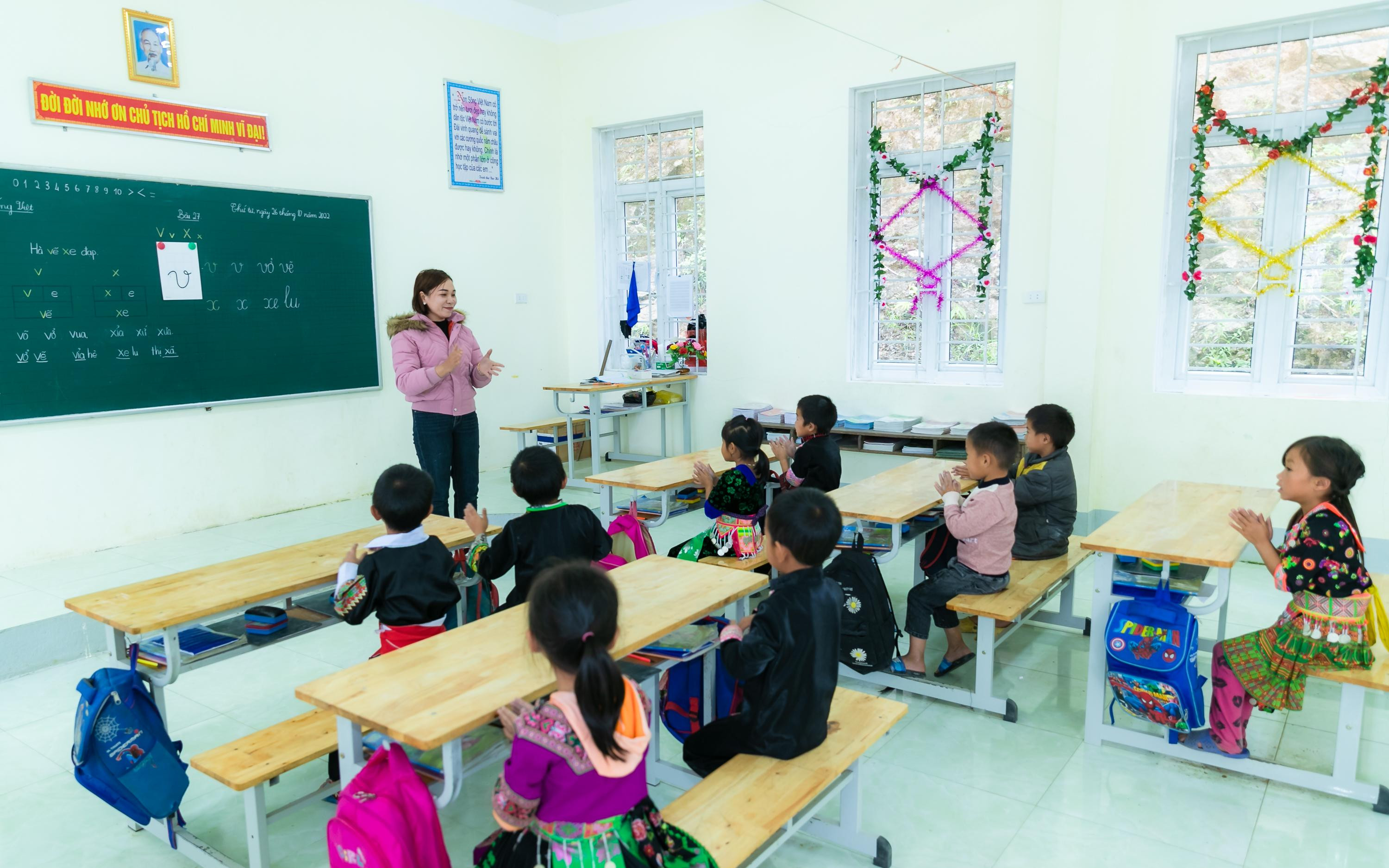 |
Now the rainy season has begun, the fog turns into cold rain and covers the school. In the hazy sky, the sound of teachers and students reading their lessons echoes across the mountains and hills... Photo: Duc Anh |
Teacher Lo Thi Vuong, 36 years old, at Huoi Co Primary School shared: “Previously, the school was temporary. The teachers' houses and classrooms were made of wood. 3 years ago, a solid, spacious school with full electricity and water was built and put into use. Thanks to that, teaching activities as well as the living conditions of teachers have been somewhat less difficult”… This is the first year that teacher Vuong and teacher Kha Thi Hoa (45 years old) were assigned by Nhon Mai Primary Boarding School to teach at this high point. For the two teachers, teaching "in the clouds" is a very interesting experience.
 |
Teacher Lo Thi Vuong, 36 years old, at Huoi Co Primary School. Photo: Duc Anh |
Teachers in the highlands are often reluctant to talk about difficulties, but in reality, to bring "literacy" to their students, they themselves have to overcome many obstacles. For Ms. Vuong (living in Tam Dinh commune), Ms. Hoa (living in Luu Kien commune), the distance from school to home is over 150km. Under normal conditions, they only return home once every 1-2 weeks. Coming to Huoi Co, they face shortages because the village has no shops. If they want to buy anything, they have to struggle up and down the high mountain slopes. They face extreme loneliness when they cannot integrate into the customs and lifestyle of the villagers. Here, people still go to work from early morning until late at night; go to bed early at night; there is little communication... Not to mention the harsh weather conditions. In the hot season, the sun dries people. In the rainy season, the sun is not seen for a whole month, and the fog is freezing cold.
Regarding teaching, teachers also have a hard time when students do not know Vietnamese. To communicate to students, teachers must use two languages (Vietnamese and Mong), and it also requires a lot of effort. At school, students have just learned a little Vietnamese, when they get home they communicate with their parents in Mong, but the next day at school they forget the words they have learned. Teacher Kha Thi Hoa shared: "The hardest thing is still teaching students Math, Literature, practicing words and sentences. To help students understand the lesson, teachers can only be more patient and patient to teach step by step."
Every morning, seeing all the children come to school fully and know their lessons is the greatest joy and happiness.
The rainy season has come, the cold wind blows into the classroom. Covering the bed with a tarpaulin to keep it dry, stepping down to the fire to warm up, teacher Hoa shares her feelings: “The life of the people in the highlands has become somewhat less difficult, but the children still do not have enough to eat and stay warm. Hopefully, there will be more sharing from society for the children… As for us teachers, we only hope that we are healthy enough to serve the education cause here well. Every morning, seeing the children come to school fully, knowing their lessons is the greatest joy and happiness.”
Sharing and love
In the Nhon Mai border commune, each school has its own difficulties. The most difficult is the Huoi Man village school - This place has similar conditions to Huoi Co village, however, the road to the village and the school is a dirt road, with a very steep slope, making it impossible to enter by motor vehicle. To get to Huoi Man school, teachers have to walk 4 - 5 hours for a distance of 8km. Or like the Pieng Luong and Pieng Oi schools - isolated in the heart of Ban Ve Hydroelectric Reservoir, teachers have to cross the river. And even the main school is the same...
Teacher Tran Duc Quy - Vice Principal, Chairman of the Labor Union of Nhon Mai Primary Boarding School for Ethnic Minorities said: Currently, the school has 7 separate locations including Na Hi, Na Lat, Xoi Voi, Huoi Co, Huoi Man, Phieng Luong and Pieng Oi villages. The total number of students is 460. For the past 2 years, the school has been implementing boarding, most of the students in grades 3 - 4 - 5 have been brought to the main school to study boarding. Currently, the total number of boarding students is 160. Implementing boarding, the school reserves all the rooms for students, so teachers lack accommodation. There are not enough public houses, 8 teachers have to rent houses outside with an average price of 200,000 VND/person/month. The school has also planned to arrange for them to stay at nearby separate locations temporarily, but it is inconvenient for boarding duty.
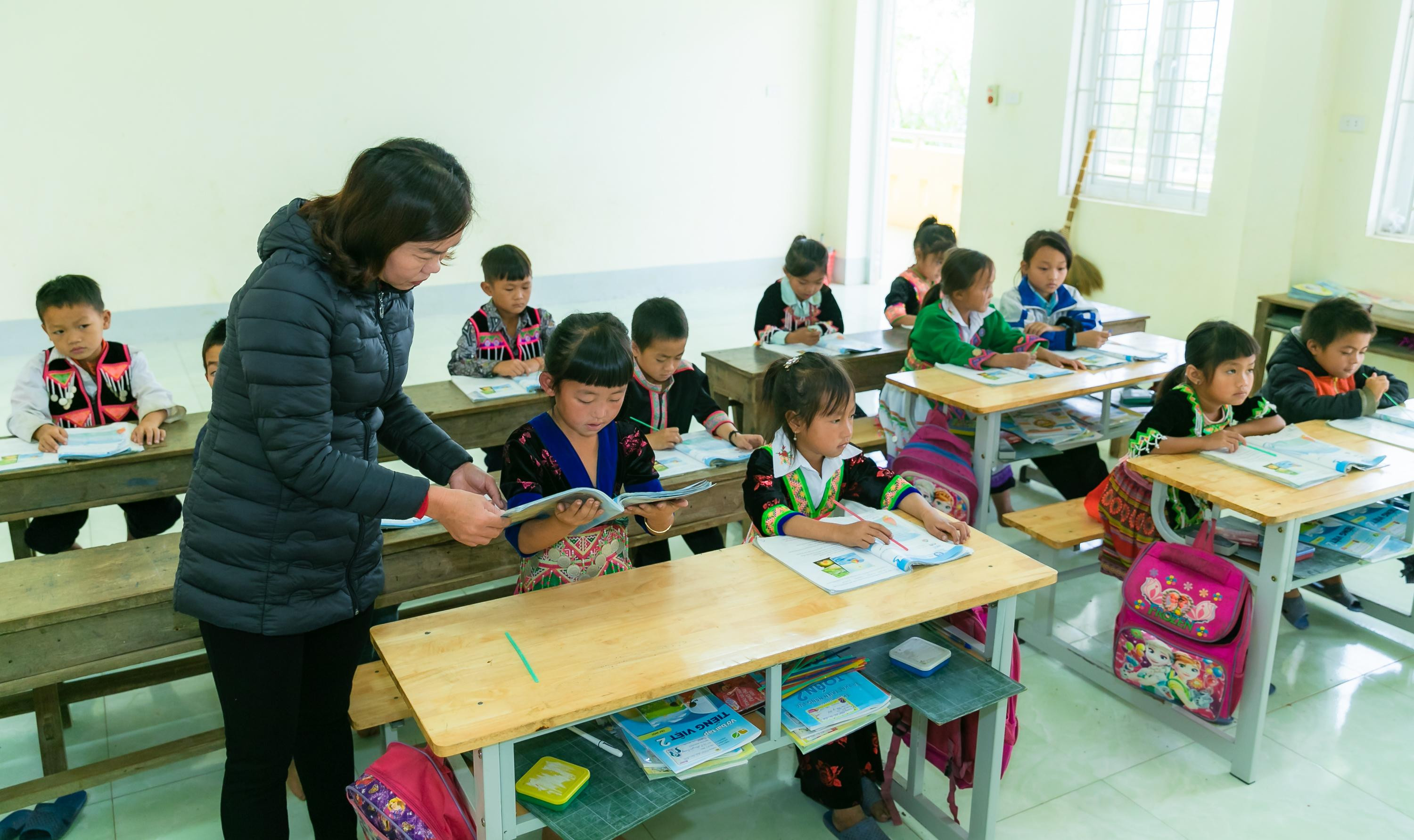 |
Currently, Nhon Mai Primary Boarding School has 7 separate locations including the schools in Na Hi, Na Lat, Xoi Voi, Huoi Co, Huoi Man, Phieng Luong and Pieng Oi villages. Photo: Duc Anh |
According to Mr. Quy, Nhon Mai Primary Boarding School currently has 41 staff and teachers. 2/3 of these teachers are not natives. Every time they go home or to school, the teachers have to travel hundreds of kilometers. The life of the school's teachers is still difficult, especially those in the remote areas. The school's Board of Directors and Trade Union have also found many ways to help teachers such as purchasing and supporting daily necessities at remote areas. However, it must be said that due to limited resources, the support is mainly spiritual encouragement.
To ensure fairness as well as the highest spirit of support, at the beginning of the school year, the Board of Directors and the School Union met and tried to arrange the best personnel according to the principle: Female teachers who are raising young children, teachers with poor health will be given priority to teach at the main points; mobilize teachers who are local to teach at difficult points. Teacher Tran Duc Quy shared: "All teachers at the school are very responsible for teaching, love the profession and love children. Many people volunteered to go to remote points to replace their colleagues who have been "staying in the village" for a long time, such as teacher Vuong and teacher Hoa in Huoi Co are two of them".
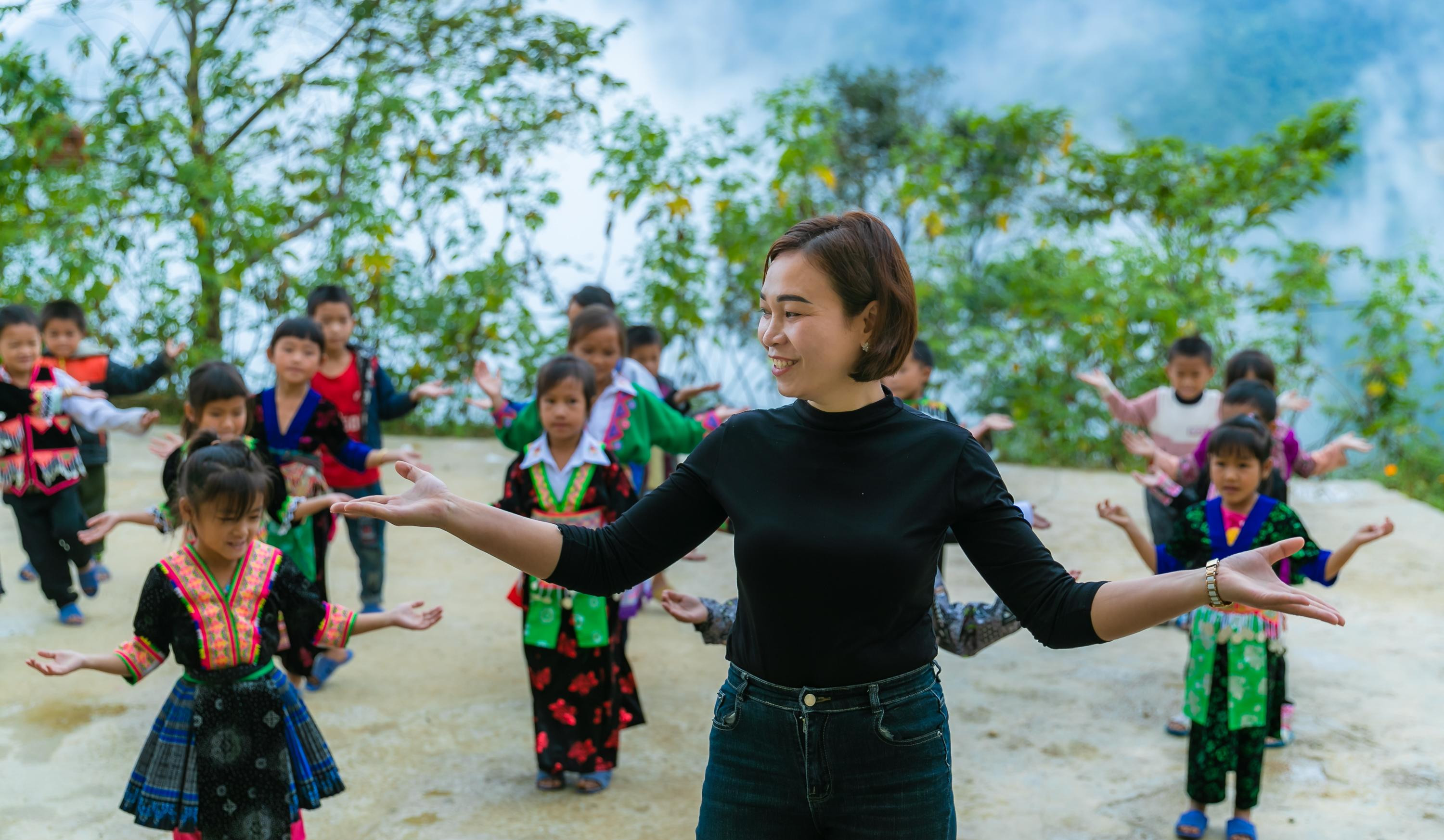 |
During the rainy season, Huoi Co is covered in cold fog, with no sun to be seen for months. Photo: Duc Anh |
In Nghe An, there are currently thousands of teachers living in remote areas, some of whom have been attached to their villages for decades. Carrying out their mission of developing education, developing the quality of human resources, promoting socio-economic development in ethnic minority and mountainous areas, they accept being far away from their families and children, entrusting their personal feelings to stay behind, wholeheartedly, wholeheartedly, and wholeheartedly "sowing" letters. Hopefully, those teachers living in remote areas will receive more and more attention, encouragement, and support. Every little bit of attention and support is a great motivation for them to be steadfast and dedicated - like teacher Kha Thi Ty (49 years old and 30 years of experience; her family is currently in Nam Dinh province, only comes home once a year, is teaching at the Cha Lang primary and preschool school, Huu Khuong commune) confided: "Sometimes I just wish someone would come up to talk to me"!

